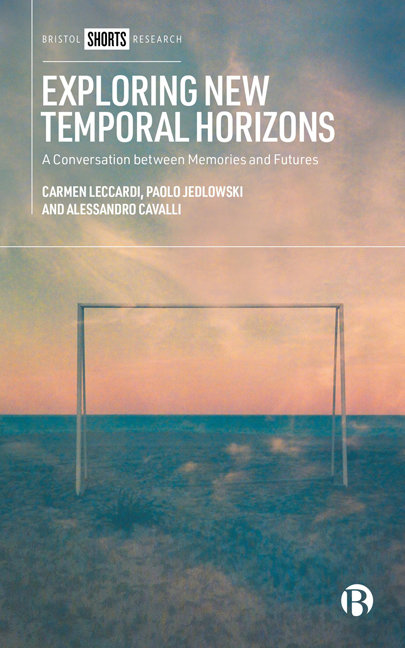Conclusion
Published online by Cambridge University Press: 28 March 2024
Summary
This book was written, and published, at a very delicate stage in world history: in the wake of the COVID-19 emergency, which has revealed the vulnerability of all human societies when affected by viruses that know no boundaries; when war has returned to the heart of Europe, putting the global economy and world order under strain; and while facing the prospect of a worsening environmental crisis. Given the uncertainty of the global and local contexts, some focus their expectations and goals on the present. A kind of ‘carpe diem’ attitude seems to resurface, over and over again: from Horace via Lorenzo the Magnificent to Dead Poet’s Society, that is, almost to the present day. Acceleration, one of the leitmotifs that run throughout all the analyses presented here, has probably contributed to accentuating this syndrome of presentism that seems to crush the past and narrow down our vision of the future.
However, as we have seen in the previous chapters, presentism is not the only key to understanding the spirit of our times, nor is it the most important one. Memory and the past do not vanish, regardless of whether one seeks to nostalgically propose them again in a future moment or draw on them to build this future. There is no future without a past, and there is no past if we ignore where we come from, where we are at present, and where we want to go. However, there is something new in the times we inhabit that was not present in past eras.
Over the past two centuries, palaeontologists have collected, classified, and catalogued fossil specimens to understand the succession of plant and animal life forms on Earth, a process that took millions of years. It is estimated that the species to which the human beings now living on Earth belong appeared relatively recently: about two hundred thousand years ago. Many species have disappeared or become extinct, either because they were defeated in the struggle for survival by more adapted species or as a result of exogenous changes in environmental conditions. Although these facts can be found in books and we may even have studied them at school, they have only recently entered the collective consciousness of at least a part of humanity. Like many other species, the human species may one day become extinct; its presence on the planet is therefore only temporary.
- Type
- Chapter
- Information
- Exploring New Temporal HorizonsA Conversation between Memories and Futures, pp. 113 - 126Publisher: Bristol University PressPrint publication year: 2023



